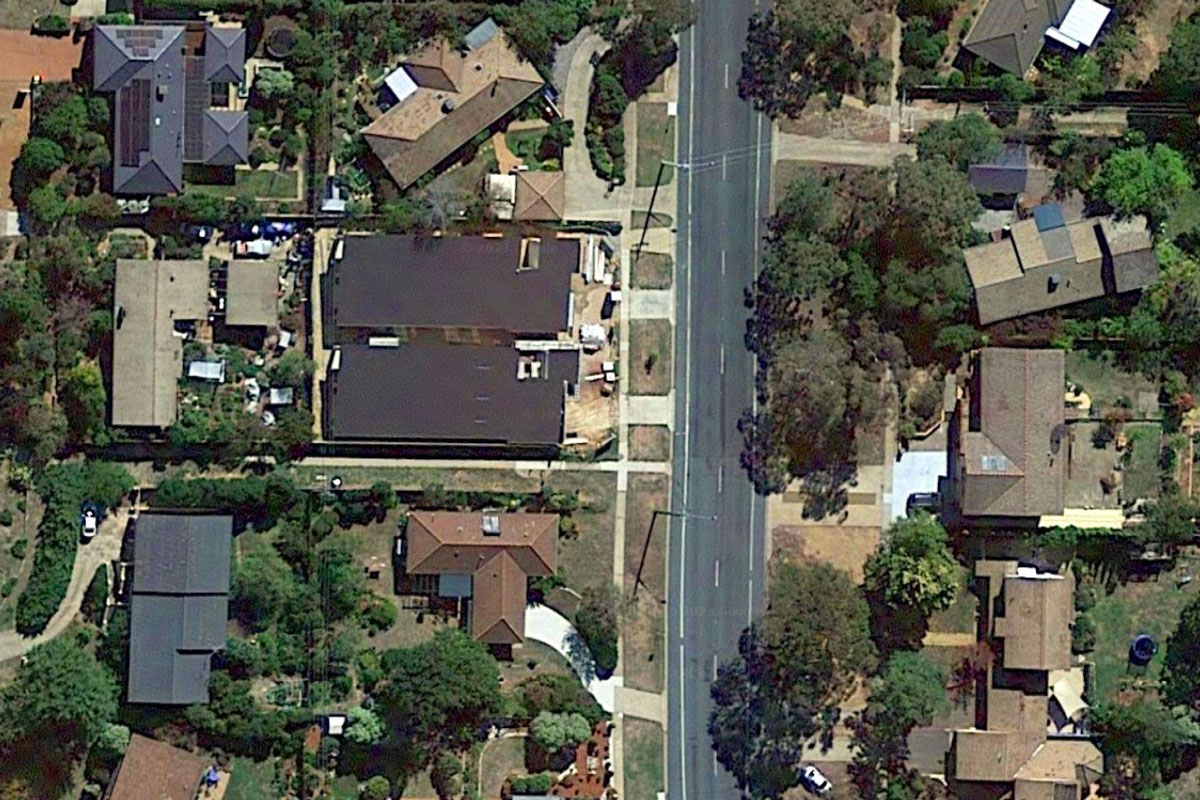
Reading through submissions for one of the many inquiries conducted by this ACT government, there was one submitted by the Rebecca Vassarotti as Heritage Minister.
Continue reading ACT politicians keep believing their own vacuous spin

Reading through submissions for one of the many inquiries conducted by this ACT government, there was one submitted by the Rebecca Vassarotti as Heritage Minister.
Continue reading ACT politicians keep believing their own vacuous spin
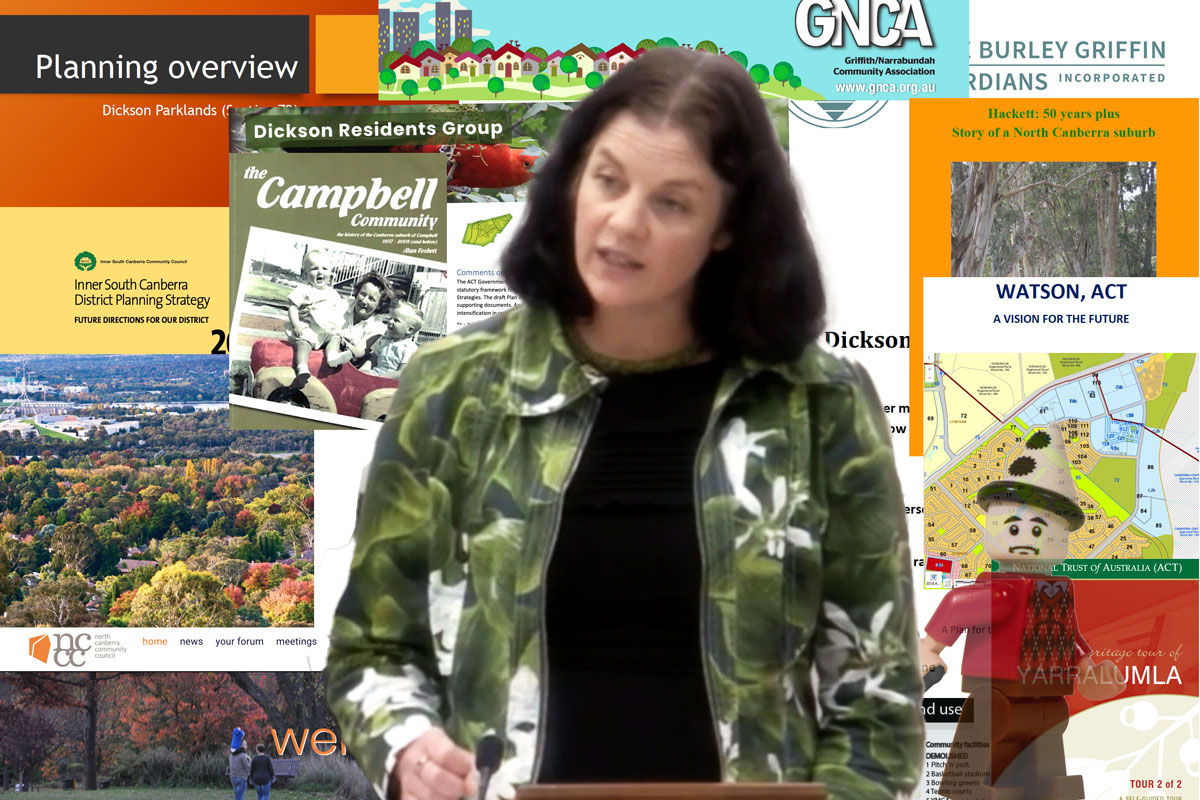
On Thursday 30th March Jo Clay MLA stood up in the assembly on behalf of the ACT Greens and moved a motion about the chief minister’s planning reforms.
Continue reading ACT Assembly refuses to hear what residents are saying about planning
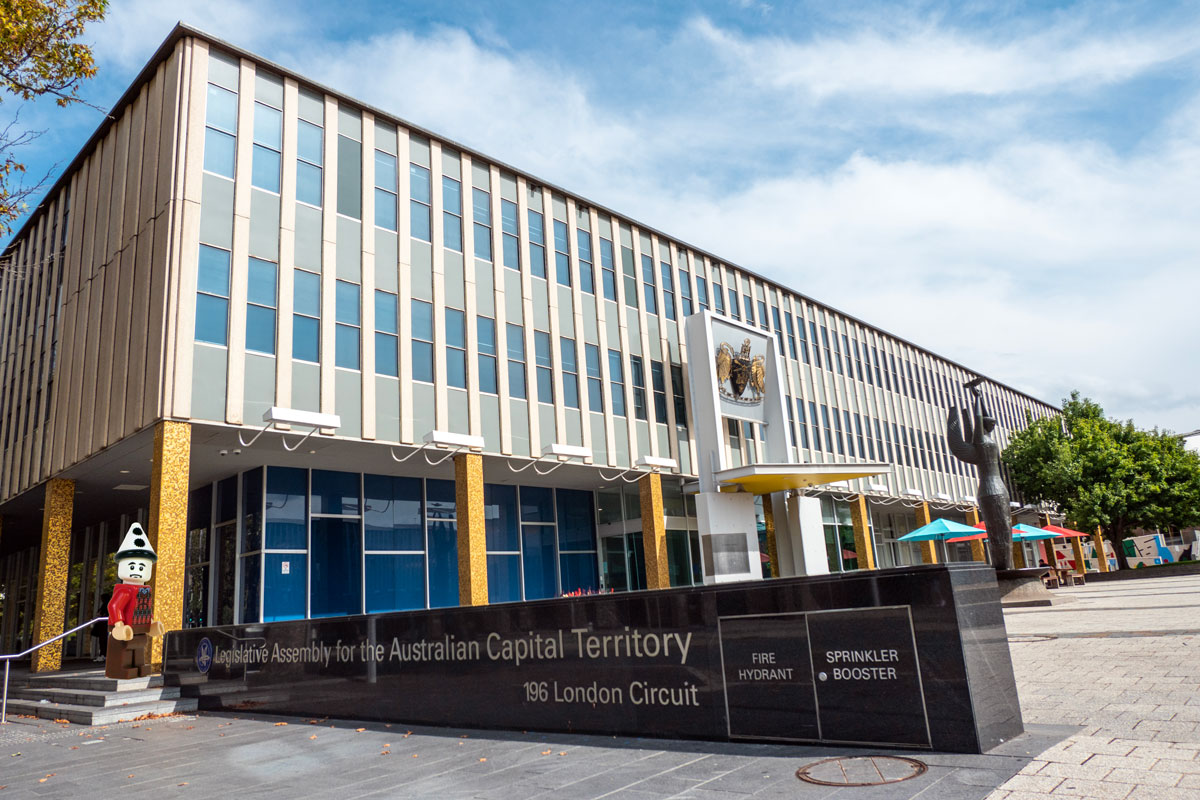
On the afternoon of Tuesday 28th March, Canberra Liberal Peter Cain rose to his feet in the legislative assembly to deliver a brief speech about an aspect of the chief minister’s planning reforms.
Continue reading Canberra Liberals need to try harder on planning

When the ACT chief planner was appointed in April 2017, he explained his theoretical approach to planning. In April 2019 I used those statements to set out ten performance indicators and then scored how he was doing.
Continue reading The ACT planning chief has failed the residents of Canberra
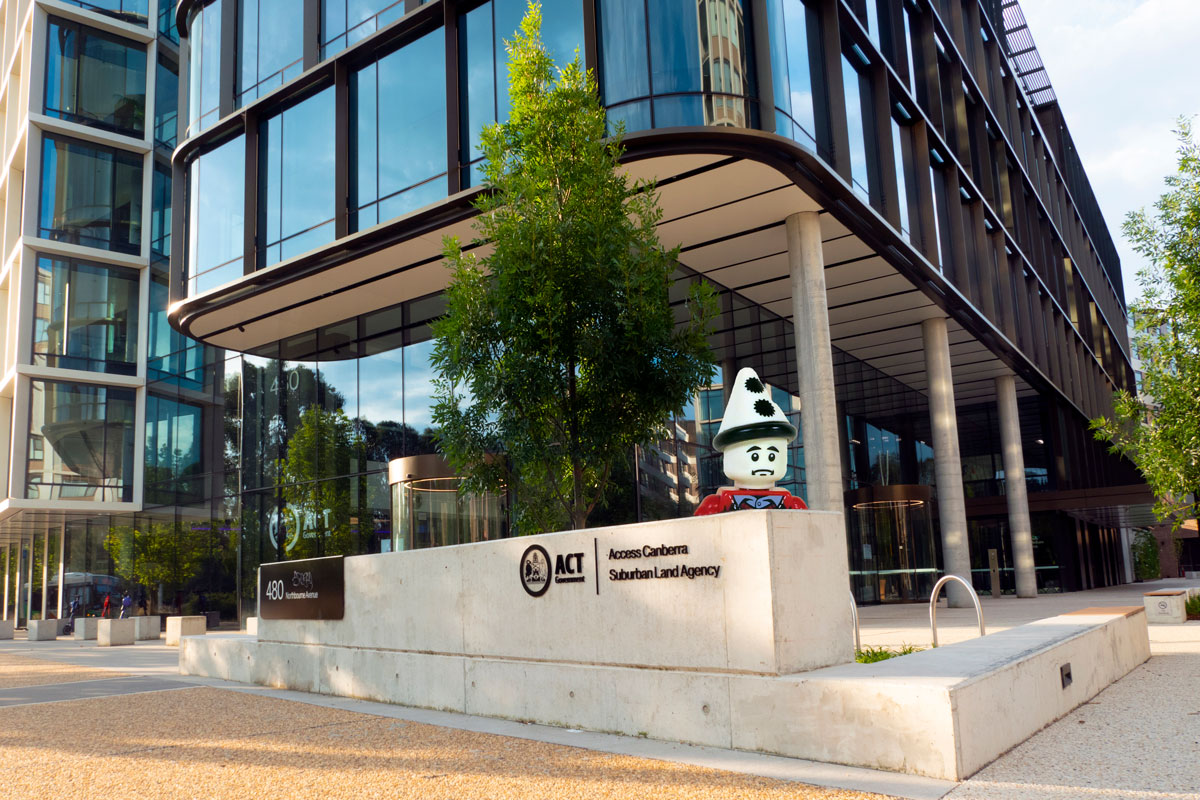
With the formal consultations now closed on the ACT government’s planning reforms, many in Canberra’s community groups would be wondering about the motivations of the planning bureaucracy.
Continue reading Greenslabor hopes that no-one noticed the deregulation of planning
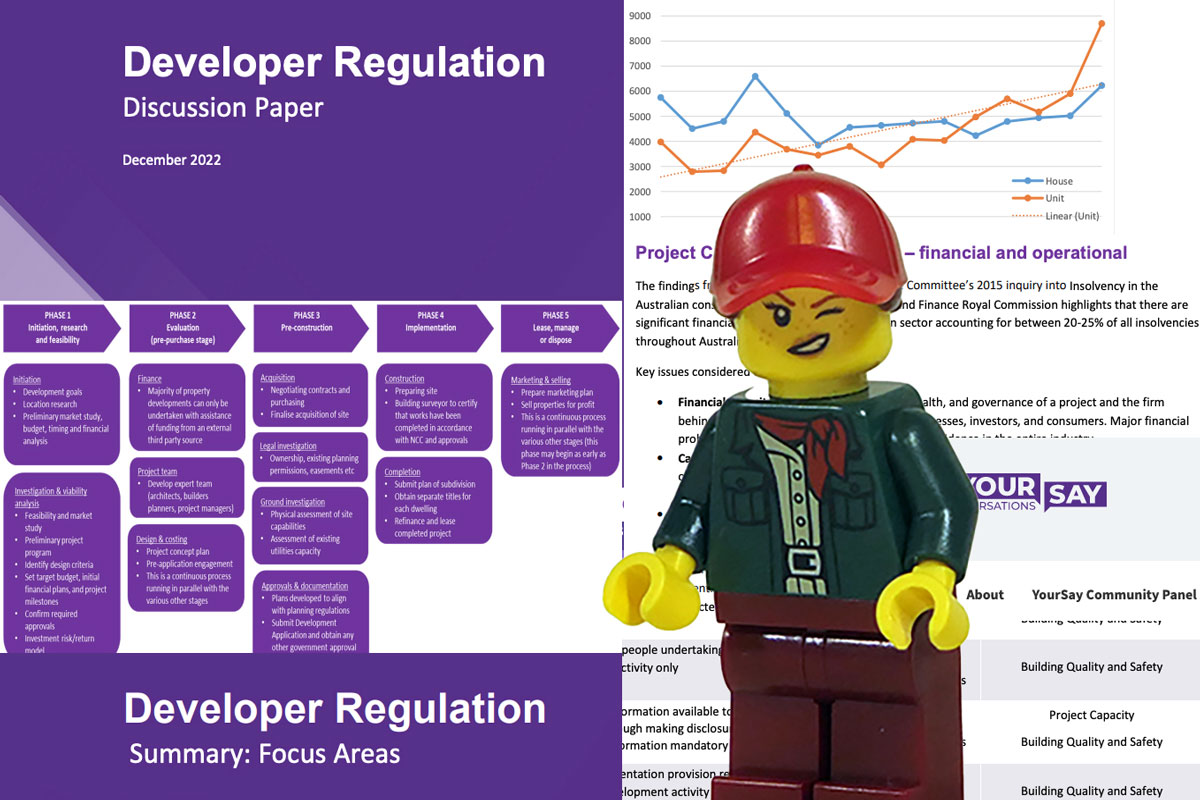
Under the Greenslabor regulatory systems for the last decade, residents have endured a laissez-faire approach to building compliance and regulation.
Continue reading A Greenslabor’s regulation discussion paper to fix everything

Things are serious when the senior ACT Government planning bureaucrat uses interviews with selected local media to send a message to local politicians.
Continue reading Barr & Ponton rubbish Jo Clay’s planning recommendations
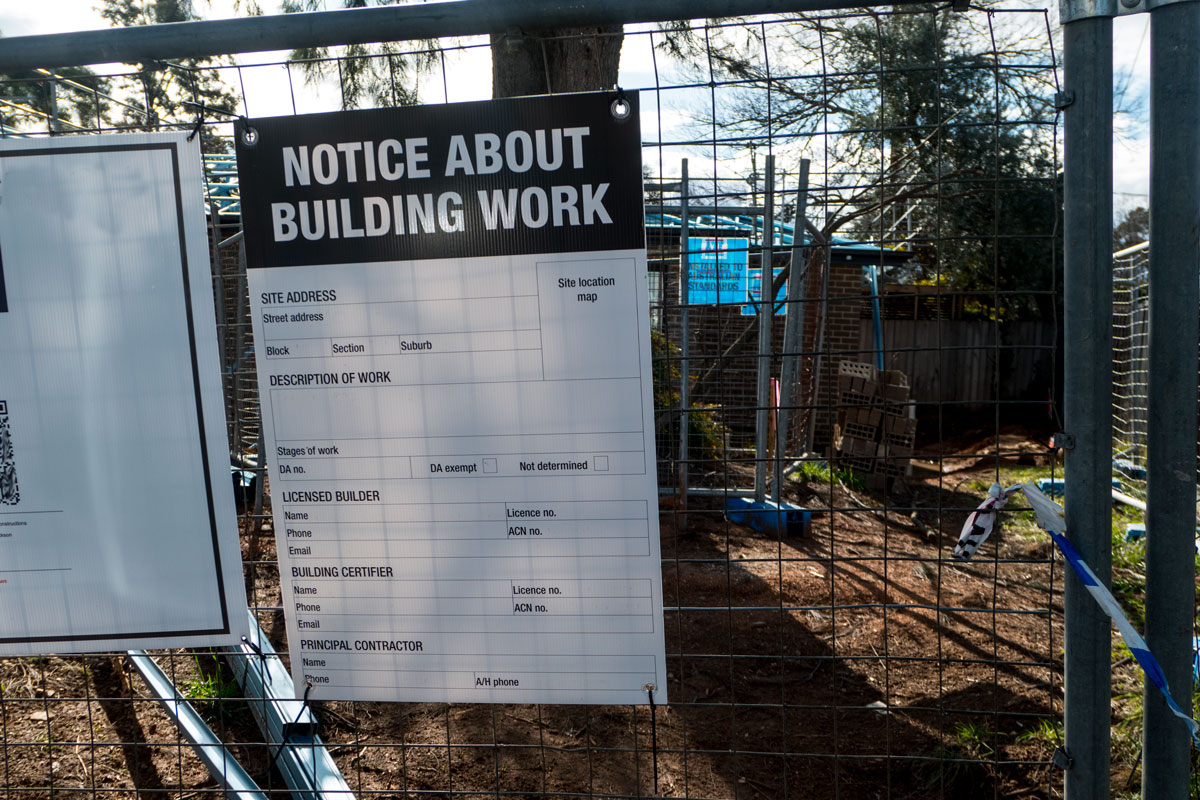
Residents shudder when they contemplate how much of their lives has had to be allocated to dealing with development applications that, according to the government’s own rules, should not have been approved.
Continue reading Bewildering world of development applications
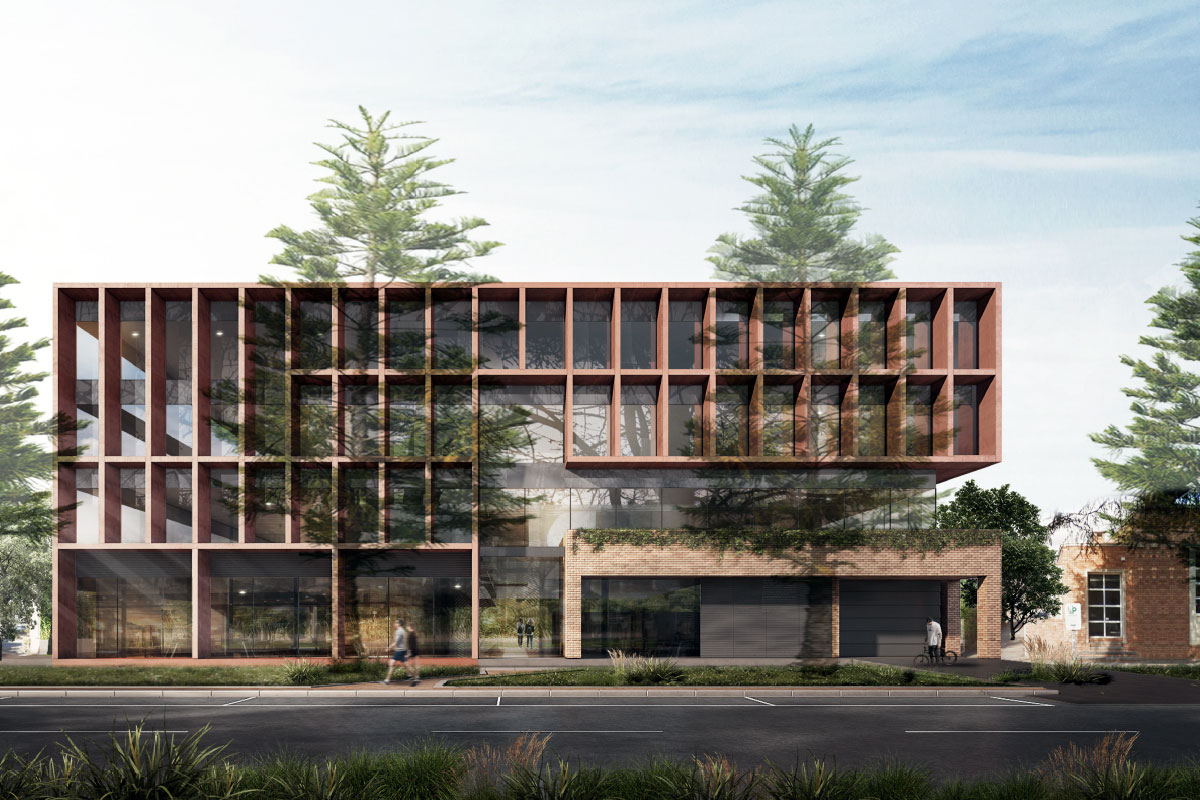
The ACT’s government planning system is under review with the first badly organised and inadequate consultation stage completed in mid-June.
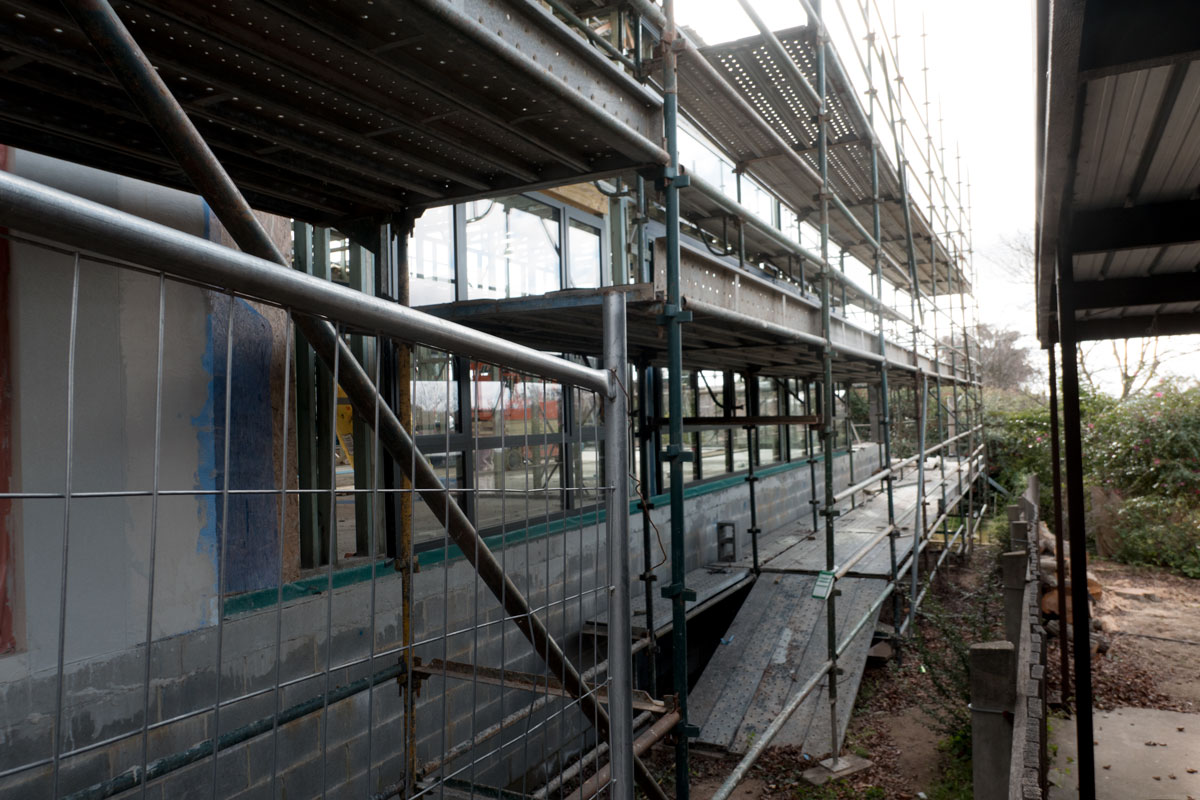
There’s a residential development at 18 Darke Street, Torrens, that is beyond belief. This is happening because the city’s planning system is broken and totally corrupted.
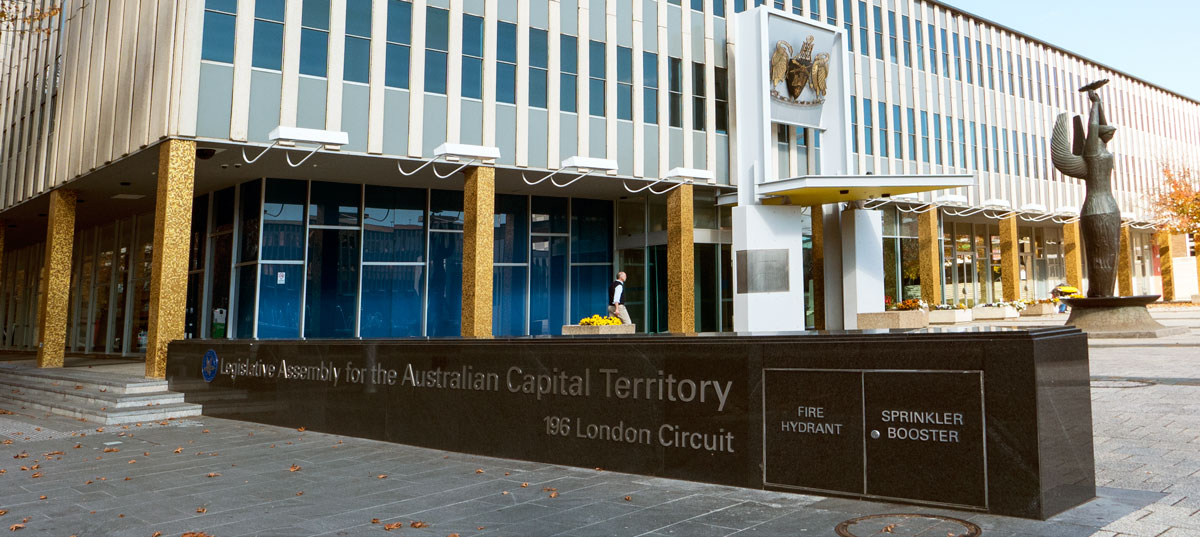
People were shocked to hear the realities of the behaviour of the ACT government as set out clearly by two speakers at the June meeting of the Tuggeranong Community Council.
Continue reading Planning mess: where the hell are the pollies?
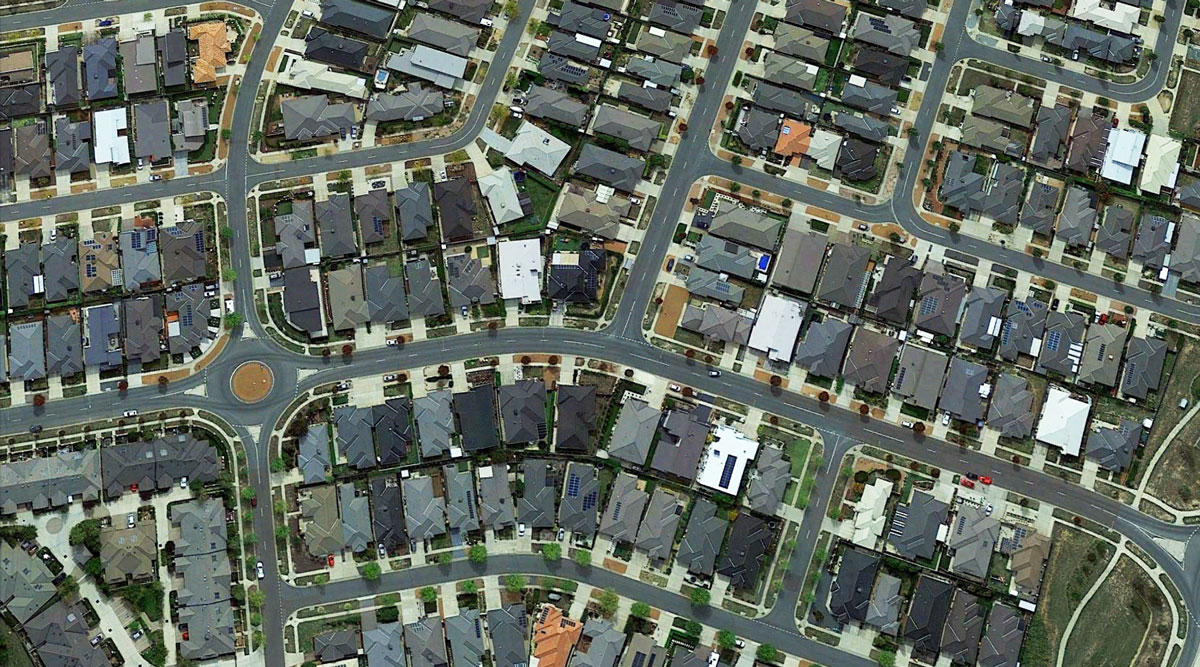
The worst behaviour of any politician or bureaucrat is when a mistake has been brought to their attention, that they double down, pretend there’s nothing wrong, produce alternative facts and discredit those who have identified the error.
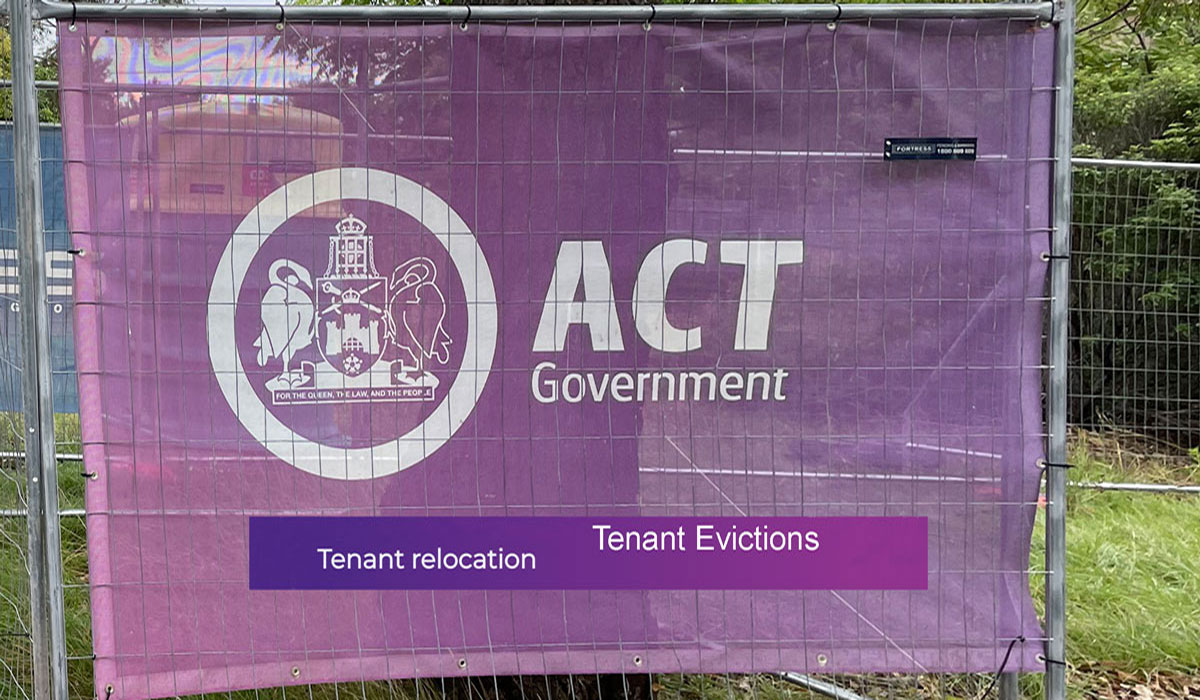
There are discussions within the community sector puzzling over the motives of the ACT government’s politicians and bureaucrats when it comes to their managing planning, development and housing. Continue reading The cruelty of ACT Government politicians
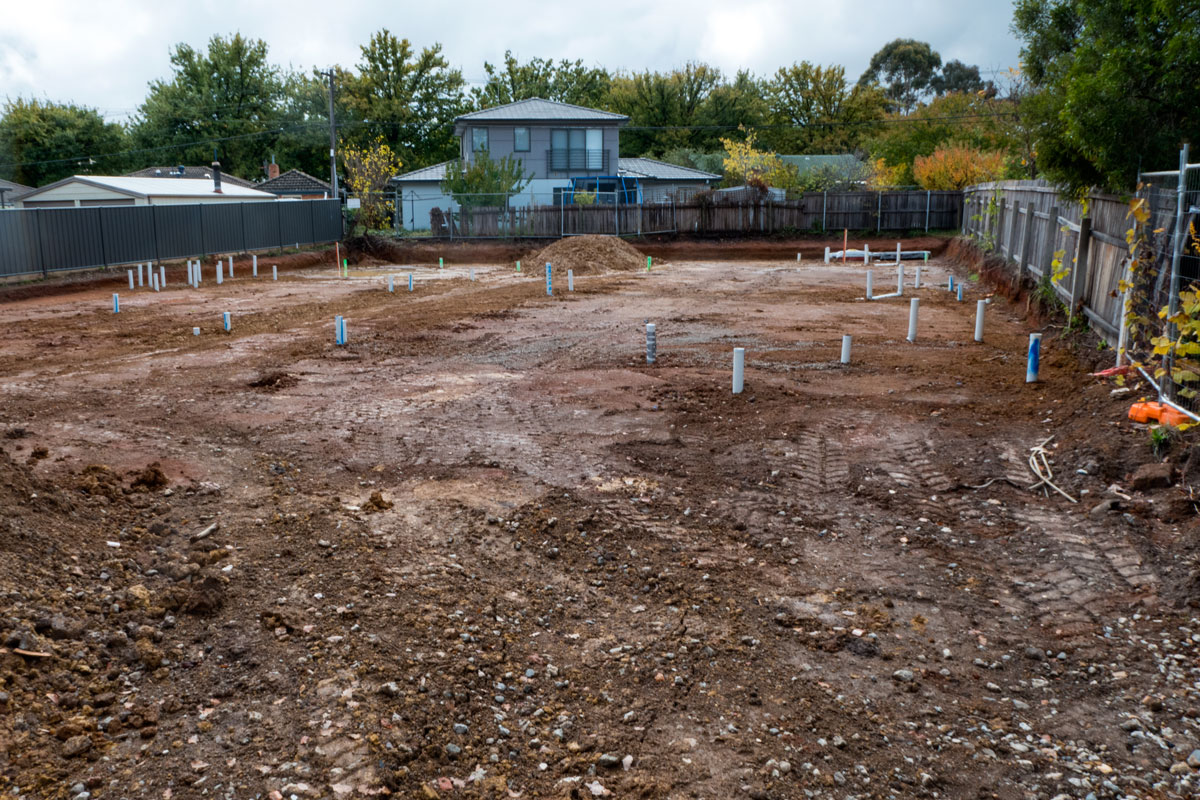
While voters were occupied with the federal election, the ACT Planning Directorate slipped through a variation to Variation 369 – the one that was to deliver greenery to the city’s backyards.
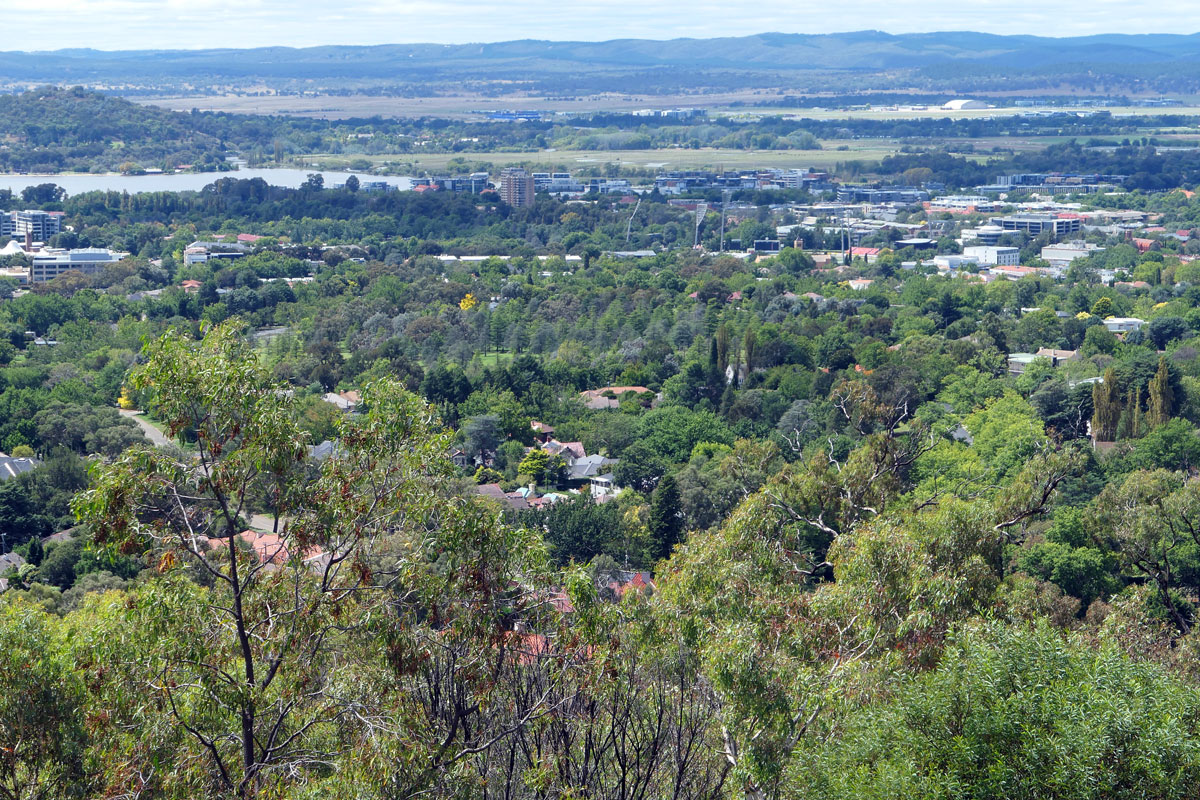
Last Tuesday 9th May, the inner south community met to hear presentations on the ACT Government’s efforts at planning reform.
Continue reading The ACT Government’s planning reforms fail the basics
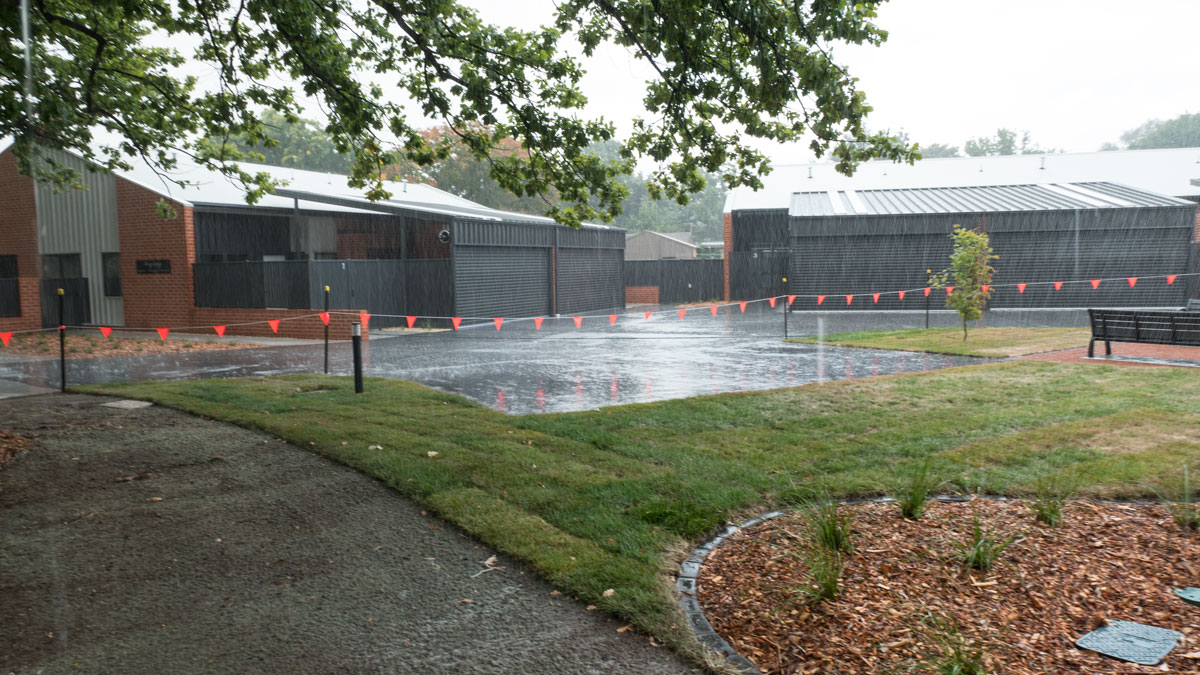
Several conversations of late have centered on the question – what has happened to the much-touted Draft Variation 369?
Continue reading ACT Variation on greenery goes missing in action
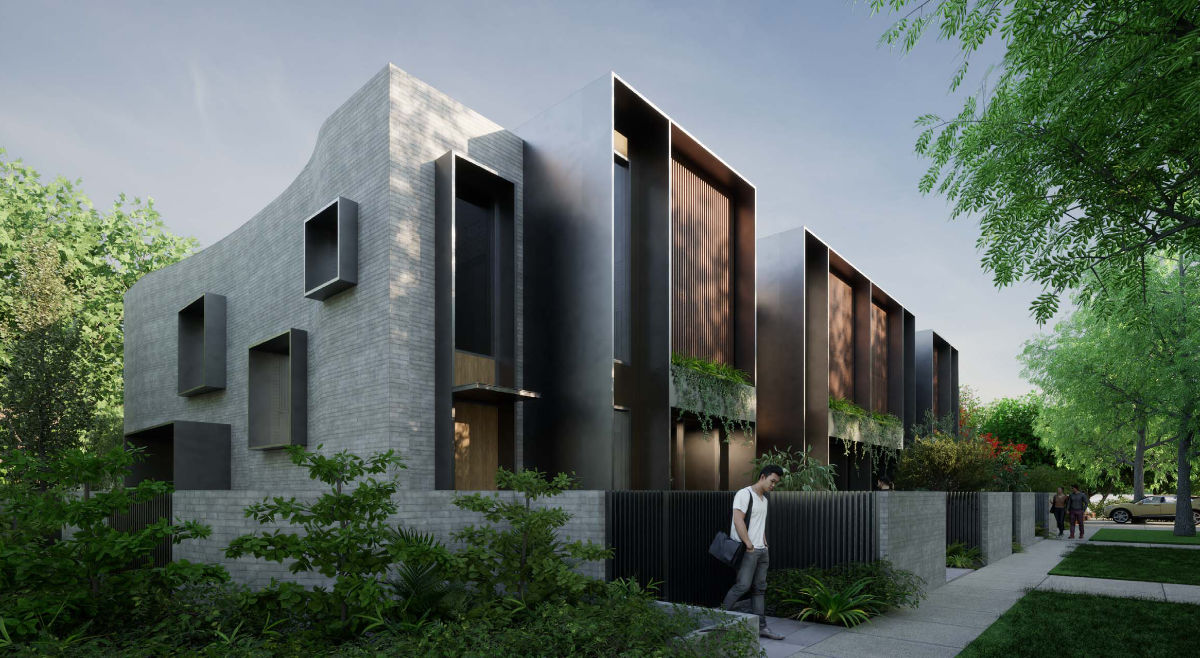
The ACT planning system is opaque and inaccessible.
Continue reading Developers sidestep Gentleman’s planning fix
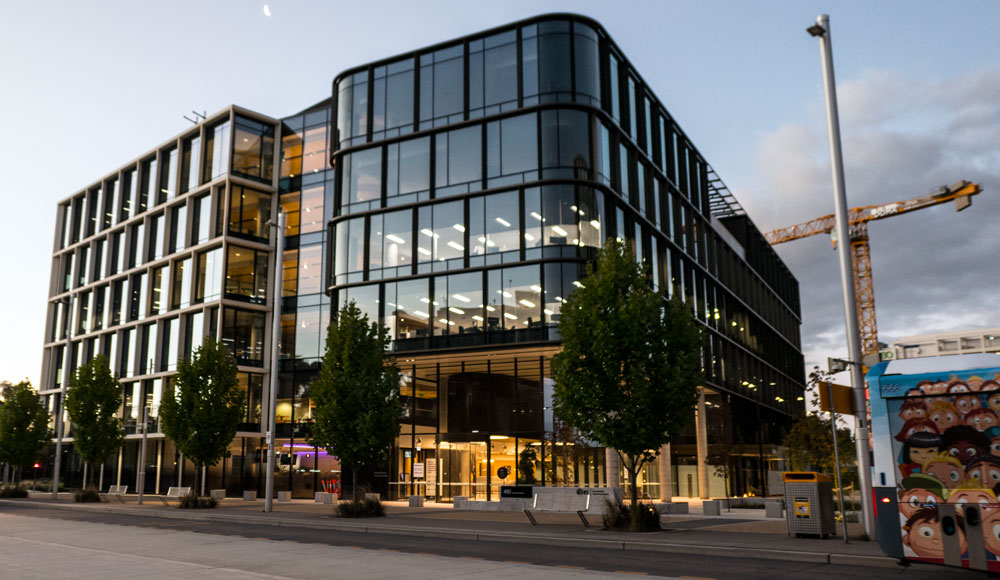
It is a conversation I now have repeatedly. I have it with community group members, with people at Tilley’s, at the supermarket, while meandering through Dickson or other centres, and when wandering around galleries.
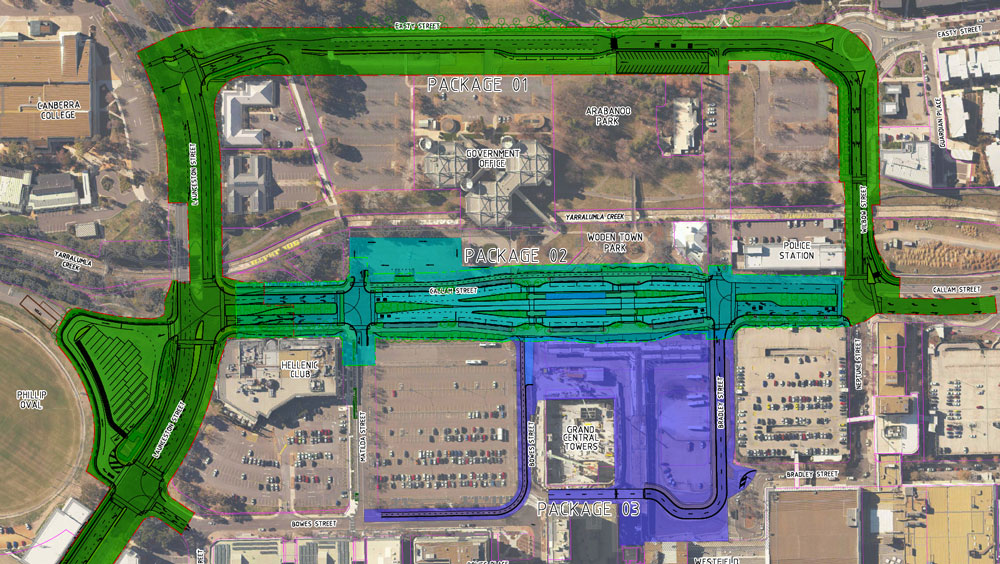
For the ACT’s Labor/Greens coalition politicians, planning is not something they worry about much despite it being something of major concern to residents.
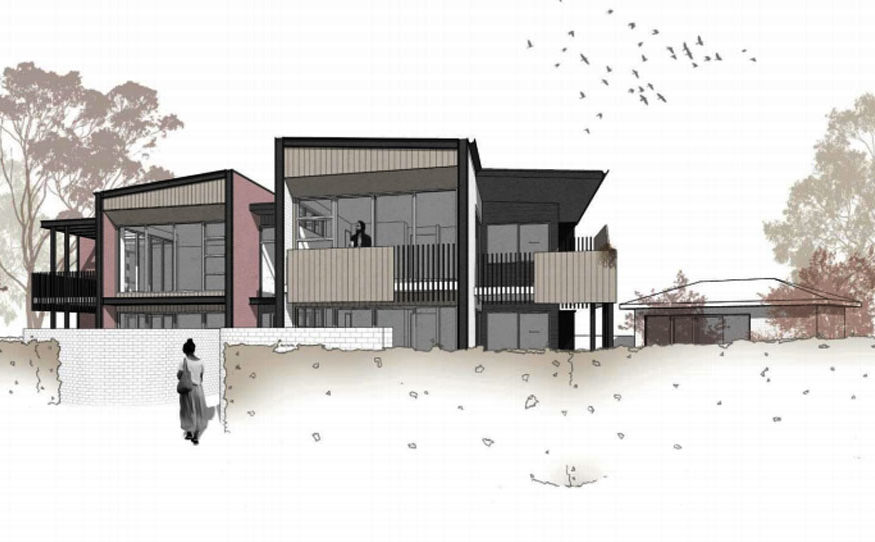
Several community associations have had presentations about an ACT government initiative titled the “Demonstration Housing Project”.
Continue reading ACT Government questionable housing program

People try hard to have faith in the federal government and its processes. When it comes to important matters, such as heritage, how can we expect the federal government to behave?

Canberra residents care for their homes, their streets, their suburbs and wish that the urban environments and facilities were maintained and enhanced for future generations.
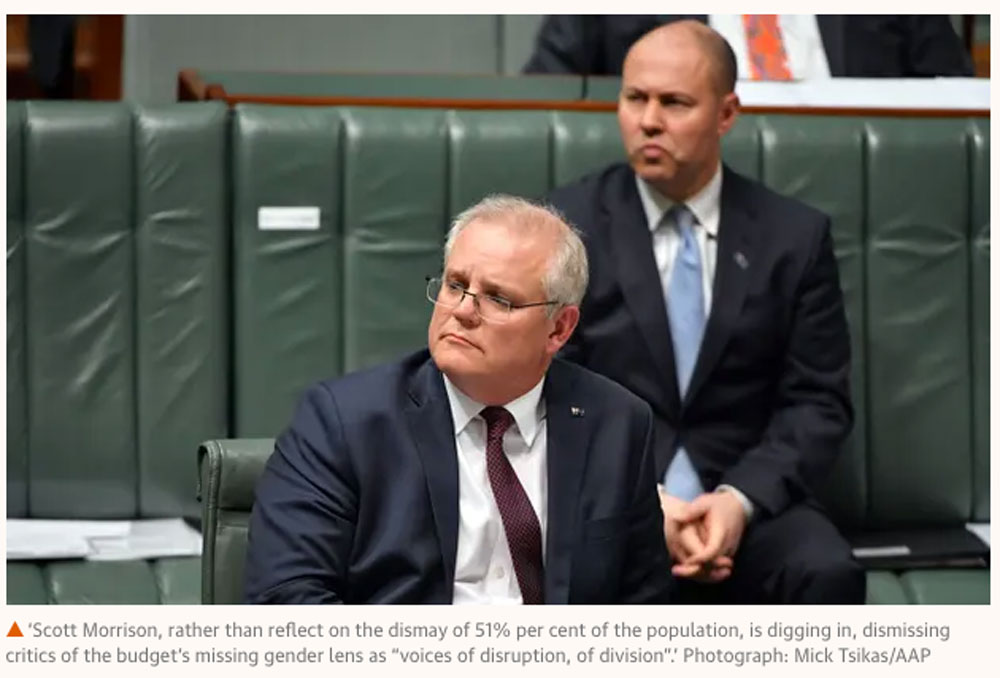
It took my breath away when I read the line by the prime minister’s office – “nothing in the budget is gendered”

It’s begun; politicians are on the phone calling people asking if there are issues they want to discuss. What joy!
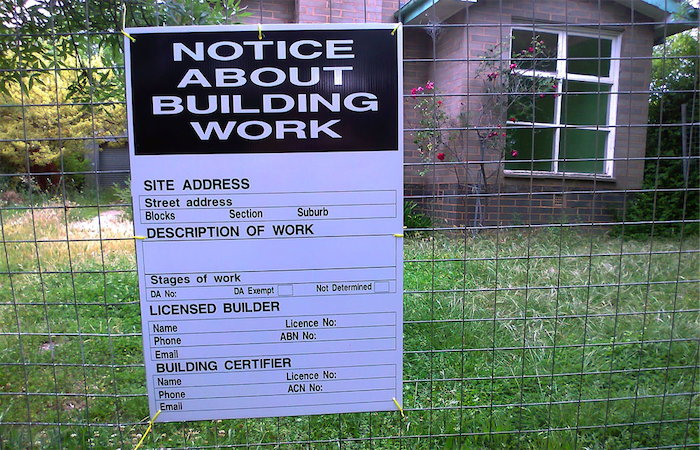
Here’s praise for an ACT politician. The accolade goes to the Greens’ Caroline Le Couteur for her work in chairing (from 2016) the Legislative Assembly committee on planning and urban renewal and the release of the April report – “The Inquiry into Engagement with the Development Application Process in the ACT”.
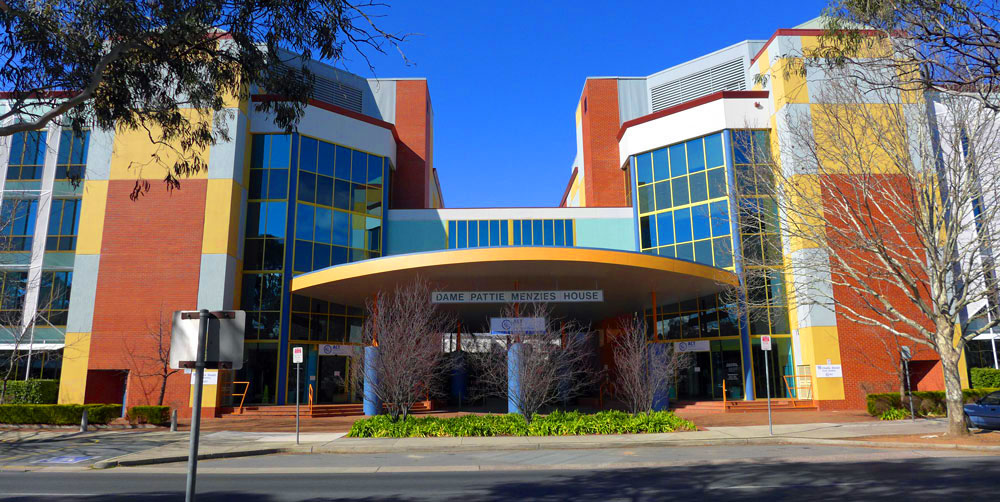
When the ACT government announced in February that it was funding the ACT planning review to the tune of $1.2 million there was not much dancing in the streets.
Continue reading No trust in ACT Government’s planning review
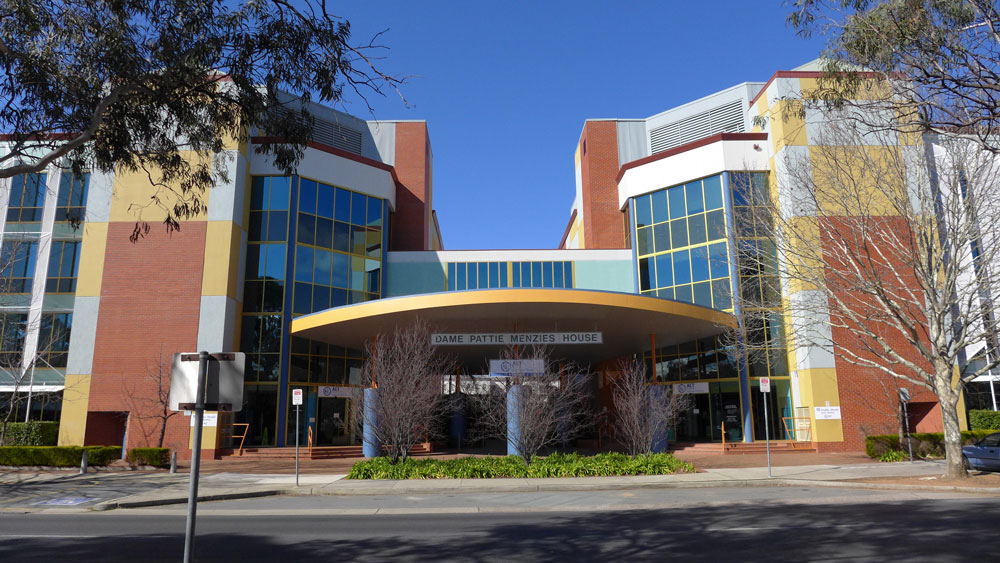
This opinion piece only scratches the surface of the enormous problems we have here in Canberra with planning and development. The whole of the planning system has been corrupted by decades of bad management and the development of a culture that has residents as the enemy to be tricked and out manoeuvred. Click here for my piece in City News.
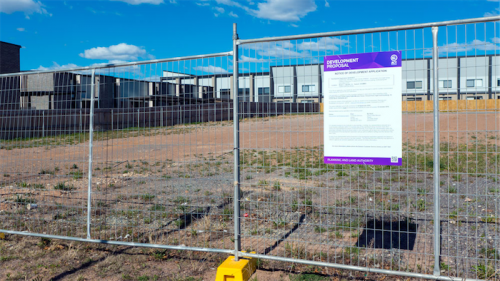
In Canberra how developers bend and get around planning rules is a common debate. The ACT Government has several ministers who mess around in planning and development – and all not good at it. See my City News article – click here.

In Australia we have a small band of conservatives who work tirelessly to have their brands of religion have a greater influence on government and the country’s laws.
Luckily till now they are more of less not so successful – well most of the time.
In their last round of attempts to achieve more religious freedoms (whatever that meant) – what would have been more applicable would have been to remove religion and the influence of such religious fundamentalists completely from the workings of government.
Meanwhile in a land not far away – things are going from bad to worse.
Click here for the story in the Guardian.

Some issues just do not go away. Dogs that are dangerous or potentially dangerous is such a topic.

As I watched the horrifying footage of the London Grenfell Tower fire, I remarked that this is what could have happened in Docklands, Melbourne, in 2014.
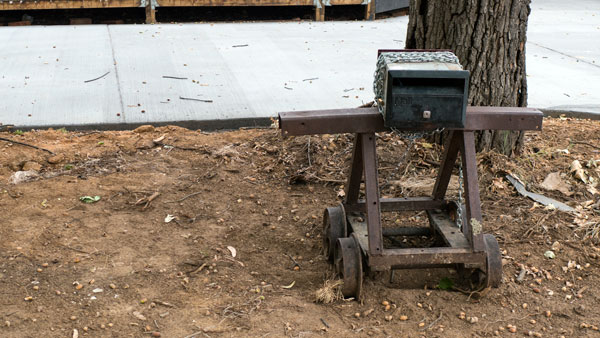
Following the resignation of their highly paid CEO, it seems that our postal services need to recover some of the revenue it has been paying out in the last few years.
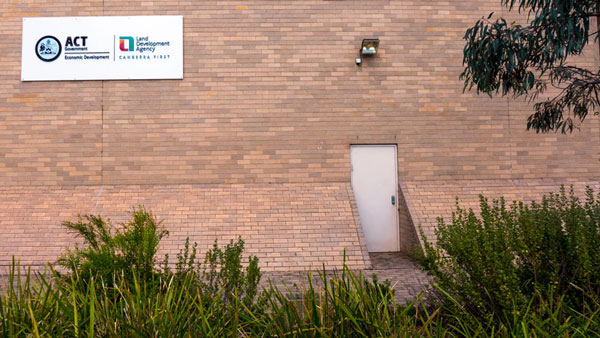
It took about three hours of argument on Friday 28th October for a decision by the ACT Civil and Administrative Tribunal (ACAT) on whether certain government planning documents should be released to those making objections to the Government’s agreement to the revised Development Application (DA) for the Dickson supermarket.
Continue reading Lawyers, files and money–and those responsible for this mess
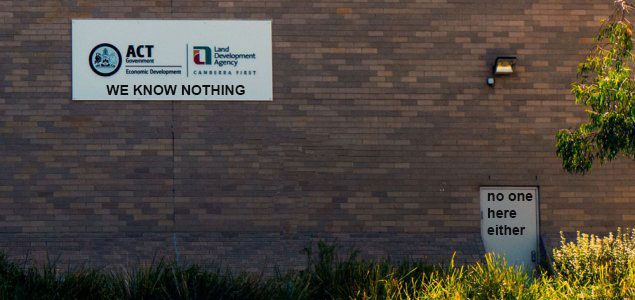
A few comments following our previous post on how the Chief Minister is going into the ACT Elections (15 Oct) with the past catching up to him.
Continue reading ACT Government transparency and accountability 2
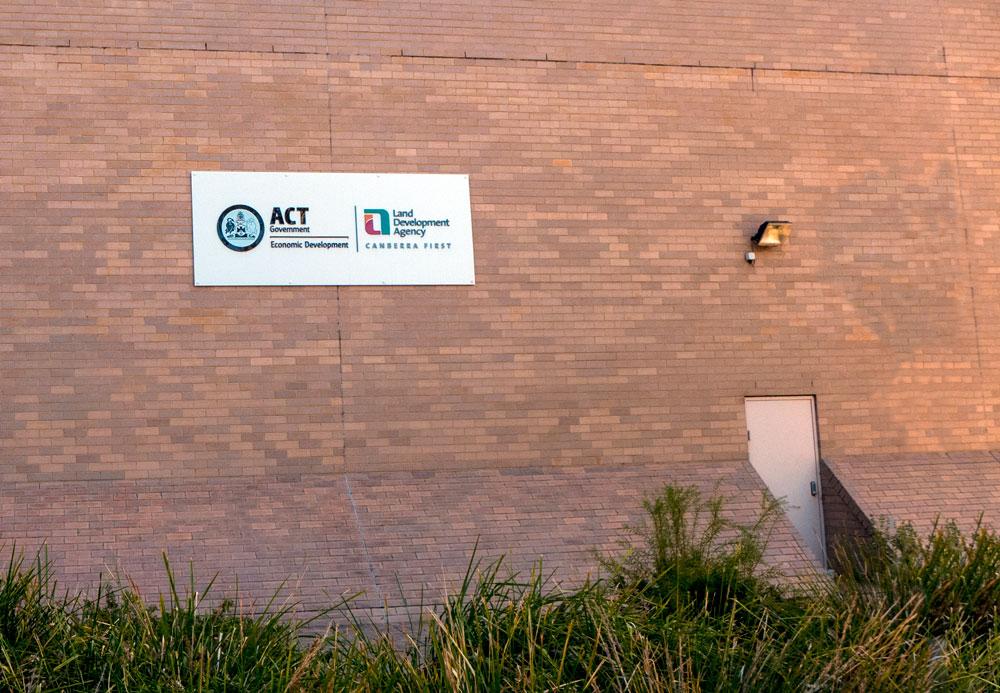
An Auditor-General’s report has been released on some questions on the operations of the ACT Government’s Land Development Agency (LDA).
Continue reading ACT Government transparency and accountability

I share with many others the dilemma of how to vote in the coming ACT elections.
Continue reading My vote before & after the candidates meeting
 There are many nasty things about the current Turnbull government. Granted he is not Abbott, but he has instead installed a very strange set of protocols for how he deals with – or not deals with – many difficult issues.
There are many nasty things about the current Turnbull government. Granted he is not Abbott, but he has instead installed a very strange set of protocols for how he deals with – or not deals with – many difficult issues.
 Here’s a couple of perspectives on the so-called ‘stop the boats’.
Here’s a couple of perspectives on the so-called ‘stop the boats’.
Dealing with contemporary planning agencies has become a very stressful task for any person with concerns for their immediate and future urban environments.
There is no doubt that the City of Sydney and its harbour are magnificent to behold. (click on the photo to enlarge). The mix of built structures really makes for a view that demands you take the time to stare, contemplate and to just enjoy it for as long as it takes. However…..
In recent weeks and months there have been several significant development proposals announced by the territory (ACT) government in Canberra. If all the government’s ambitions come to fruition then residents about to witness some very serious alterations and additions to the make-up of several parts of the inner city urban fabric.
 There are all sorts of stories in circulation in Canberra as a result of the decision to introduce paid parking for all areas within the Parliamentary Triangle. This has a big impact on those who work in the area. Some public servants are devising clever tricks to continue to have free parking.
There are all sorts of stories in circulation in Canberra as a result of the decision to introduce paid parking for all areas within the Parliamentary Triangle. This has a big impact on those who work in the area. Some public servants are devising clever tricks to continue to have free parking.
This will also mean that visitors will now have to pay to visit the national institutions and have limited time to visit. This could be a marked change in how visitors regard the national cultural institutions. I know as a local, it will mean less visits to these institutions.
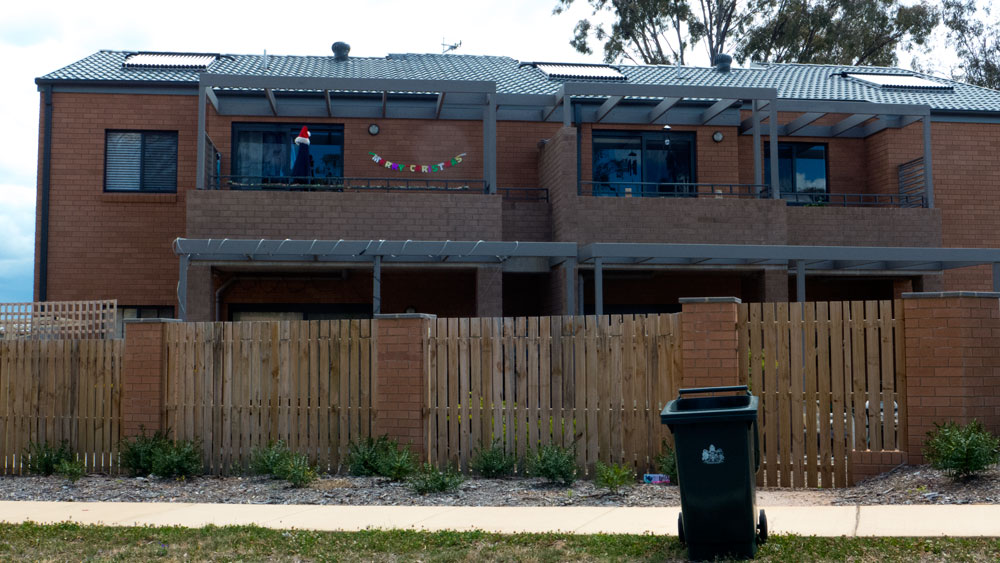 I was attending a meeting of combined community council two years ago, when to members of the public who were in attendance made very similar appeals. Both were very upset with the quality of the redevelopments that had appeared within their street, despite the local communities objections about key aspects of the developments.
I was attending a meeting of combined community council two years ago, when to members of the public who were in attendance made very similar appeals. Both were very upset with the quality of the redevelopments that had appeared within their street, despite the local communities objections about key aspects of the developments.
As far as I could ascertain, they were not necessarily opposed to the infill of their suburb. It was more about the nature of the apartments being built.
Reporting on research being undertaken
You are urged to ‘watch this space’ for research and reports by scientists who have been carrying out research on Urbanism, Climate Adaptation and Health. To quote from their website:
Safeguarding future health in Australian cities, The CSIRO Climate Adaptation Flagship has funded scientists and researchers from a range of disciplines to develop adaptation strategies which will improve the health of urban populations in the face of a variable and changing climate.
The Urbanism, Climate Adaptation and Health Cluster was established in 2010 and officially launched in March 2011 at a Conference in Cairns, bringing together nine different partner organisations focusing on 7 major research projects.
(cross posted from our other blog)
In Australia planning authorities and government administrative services sections still do not address the proven links between health and the access to open spaces. One has to only look to the small budgets for parks initiatives and worse still to the shrinking allocations for park maintenance within local governments.
Meanwhile all our governments are under stress because of the increasing requirements being identified under their health portfolios.
Living in an urban area with green spaces such as parks has a long-lasting positive impact on people’s mental well-being, a study has suggested. UK researchers found moving to a green space had a sustained positive effect, unlike pay rises or promotions, which only provided a short-term boost.
The authors said the results indicated that access to good quality urban parks was beneficial to public health. The findings appear in the journal Environmental Science and Technology.
Public health and landscape: creating healthy places (November 2013)
The UK Landscape Institute believes that greater priority needs to be given to prevention of ill health in public health and social care. All those involved in creating healthy places, public health professionals, planners and landscape architects, need to recognise that landscape has enormous potential to improve our health and wellbeing. In Australia, despite all the evidence being available, it has been a struggle to have the Australian Government recognise the importance of the links between our public spaces and the population’s health and well being.
Click here for UK Landscape Institute Public Health Policy links